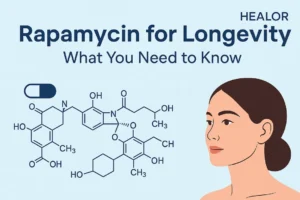
Congestive heart failure (CHF) is a chronic health condition that can be fatal if it’s not addressed promptly and correctly. Heart failure does not mean the heart literally stops working. Instead, congestive heart failure occurs when the heart is unable to pump sufficient blood into the body.
This happens when the muscles of the heart are too weak or stiff to efficiently pump out blood — resulting in congested or backed up blood supply and not enough oxygen flowing through the body.
Causes of Congestive Heart Failure
Heart failure is primarily caused by weakened or damaged heart muscles. In turn, these are caused by other health conditions, severe infections, certain medicines, and poor lifestyle choices.
Some of these health conditions and lifestyle choices are:
- Coronary artery disease
- Cardiac arrest or heart attack
- Hypertension or high blood pressure
- Myocarditis or inflammation of heart muscles
- Arrhythmia
- Kidney disease
- Obesity or a body mass index over 30
- Excessive alcohol intake
- Tobacco and drug use
Symptoms of Heart Failure
Symptoms of congestive heart failure generally develop slowly. This is why it can be harder to diagnose CHF in the early stages. However, there are also cases where the symptoms may start suddenly.
Common signs of heart failure include:
- Shortness of breath, even when lying down
- Fatigue or weakness
- Swollen legs, ankles, and feet
- Rapid or irregular heart rate
- Chest pains
- Wheezing or rapid breathing
- Weight gain
- Swollen or bloated stomach
- Hacking cough, especially one that brings up mucus with blood
Treatment Options for Heart Failure
A combination of medications and lifestyle modifications are used to treat congestive heart failure. The prescribed treatment will depend on the underlying cause of the disease.
Medicines that are commonly prescribed to treat heart failure are blood pressure medications, such as beta blockers and angiotensin-converting enzyme (ACE) inhibitors. Diuretics, digoxin, and positive inotropes may also be prescribed.
In some cases, coronary bypass surgery, heart valve repair, and similar surgical procedures may be necessary to treat heart failure. Installing a ventricular assist device to support the heart is another potential treatment.
Take note though, that no treatment option can fully cure CHF. The most these can do is to slow down the progression of the condition.
Lifestyle Changes To Prevent Heart Failure
Lifestyle changes can significantly lower your risk of heart failure. Additionally, lifestyle changes can help ease symptoms and prolong your life.
Recommended lifestyle changes include:
- Quitting or avoiding smoking
- Having a well-balanced diet
- Avoiding too much salt and solid fats
- Exercising regularly
- Maintaining a healthy weight or BMI
- Managing stress
- Reducing or stopping alcohol intake
Even if you have already been diagnosed with congestive heart failure, there are still steps you can take to boost your heart health. Aside from lifestyle changes, carefully monitoring symptoms and keeping a positive attitude are also important.
Schedule your appointment today at our primary care office








